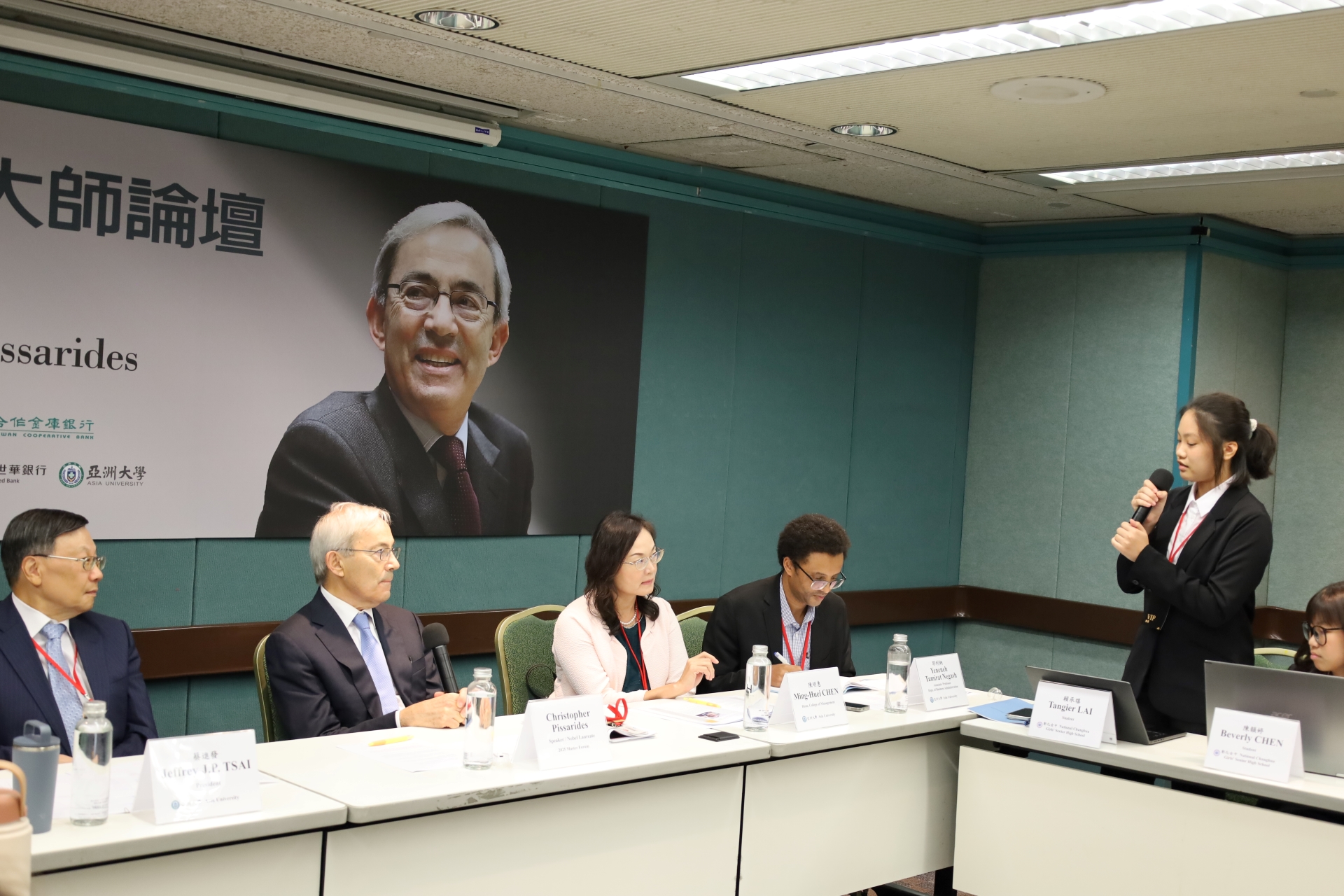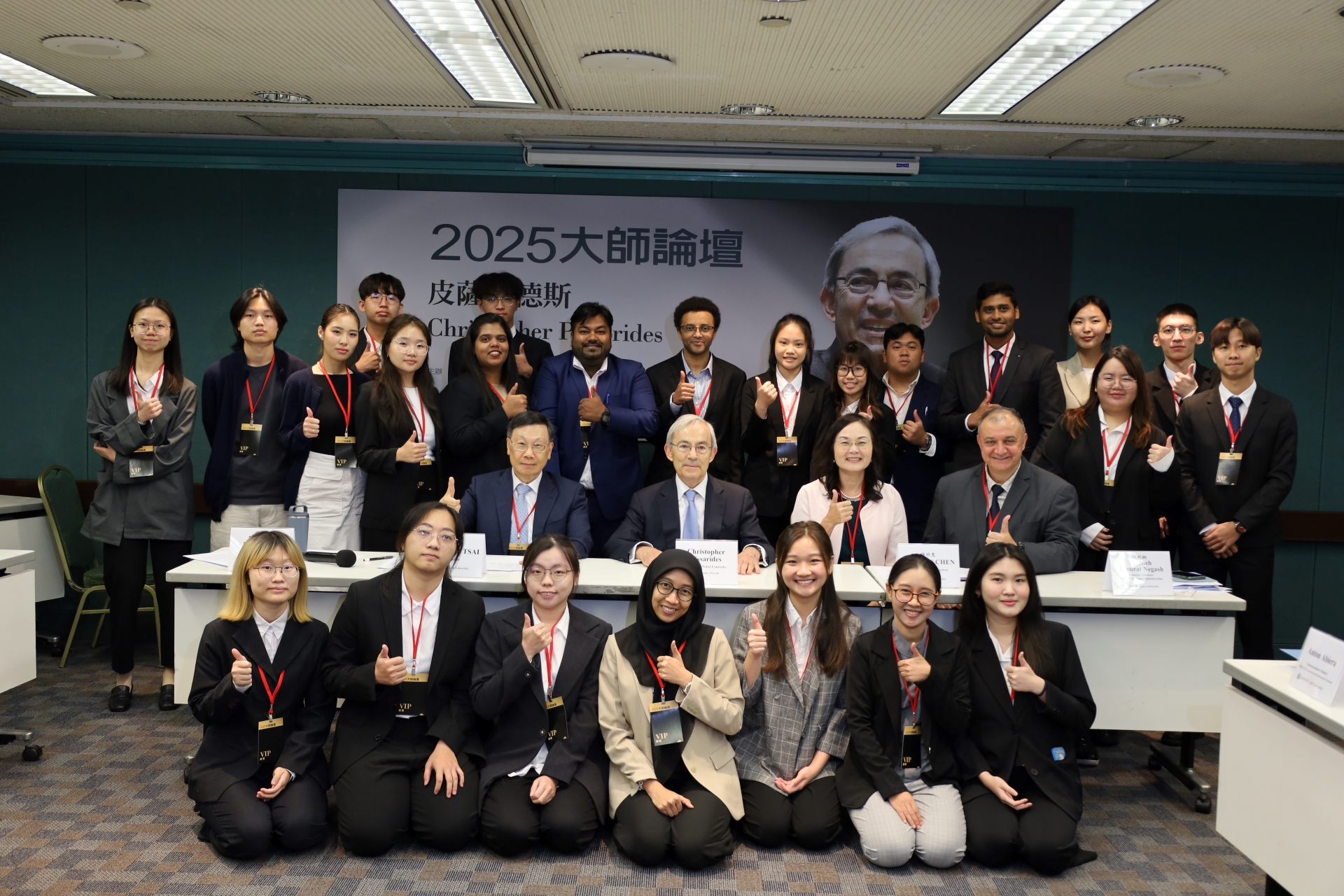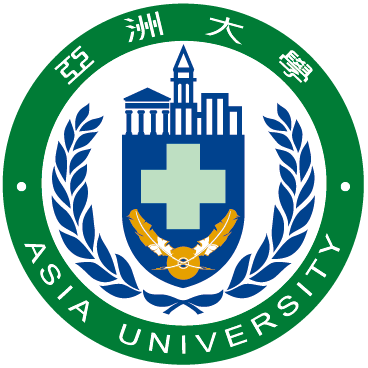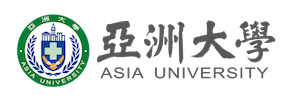
"At the '2025 Master Forum', Cheng-Hsi Lai (first from the right), a representative from Changhua Girls’ Senior High School, a strategic partner school of Asia University, posed a question to Nobel Laureate Professor Christopher Pissarides (second from the left), gaining firsthand insights from the master. Also pictured is Dean of the College of Management, Professor Ming-Hui Chen (second from the right)."
Nobel Laureate in Economics (2010) Explores Global Economic Transformation and the Future of the AI Era
At the 2025 Master Forum, Lai Cheng-Hsi (far right), a representative from Changhua Girls’ Senior High School—part of Asia University’s Strategic Alliance High Schools—poses a question to Nobel Laureate Professor Christopher A. Pissarides (second from left), gaining invaluable insights directly from the master.
Christopher A. Pissarides, recipient of the 2010 Nobel Prize in Economic Sciences, met with faculty and students of Asia University (AU) on June 20. This marked his second exchange with AU members in 14 years, making him one of 18 Nobel Laureates across disciplines such as economics, medicine, and chemistry to participate in AU’s Nobel Laureate Forum since its inception in 2010. This dialogue centered on global economic shifts and the future of labor in the AI era.
Participants described the opportunity to engage closely with a Nobel Laureate as both precious and unforgettable, highlighting the profound impact of Professor Pissarides’ insights and presence.
AU President Jin-Fa Cai remarked on the “Trump 2.0” era, noting its sweeping effects on both the global landscape and Taiwan. With geopolitical tensions and supply chain reconfigurations on the rise, he stressed that younger generations must develop interdisciplinary knowledge and macro-level analytical skills to thrive in the AI era.
Quoting Dickens’ A Tale of Two Cities, President Cai said, “It was the best of times, it was the worst of times.” He explained: “Because of Trump, this is the worst of times; yet with the rise of AI, it is also the best of times.” He echoed Professor Pissarides’ call to leverage technology as a tool to counter negative geopolitical impacts.
President Cai emphasized that AU’s establishment of the Nobel Laureate Forum aims to instill in students the spirit of intellectual pursuit, global vision, and resilience—regardless of background—empowering them to dream big and achieve excellence. The forum encourages students to engage with world trends, think critically across cultures, and communicate globally.
In this forum, over 30 AU students and faculty from departments such as Business Management, Finance, and Accounting, as well as international students from Indonesia, India, Thailand, the Philippines, and Mongolia, participated. Also in attendance were four high school representatives from Changhua Senior High School and Changhua Girls’ High School. International students raised questions about economic challenges, tariffs, and U.S. policies affecting their home countries.
Ankina, a doctoral student from India in AU’s Business and Management program, shared her research on AI and human-machine collaboration. With India increasingly adopting AI-driven decision-making, she asked: How can humans avoid becoming passive users of AI?
Professor Pissarides emphasized the importance of communication between employers and employees, the development of internal AI governance systems, and the responsible, trust-building implementation of AI in the workplace.
Lai Cheng-Hsi, a student from Changhua Girls’ High School, expressed her aspirations to study in the U.S. and asked whether Trump’s policies genuinely benefited the American economy. Professor Pissarides responded candidly: “It’s heading in the wrong direction.” He explained that while tariffs may protect underdeveloped industries below critical mass, the U.S. already hosts the world’s largest companies, and protectionist tariffs do more harm than good to its economy.
President Cai noted that these inquiries reflect AU students’ strong engagement with global issues and align with AU’s commitment to fostering self-driven learners and global communicators. He described the forum as more than an academic exchange—it was a cross-cultural, intergenerational, and interdisciplinary collision of ideas, cultivating talent capable of navigating future global uncertainties.




